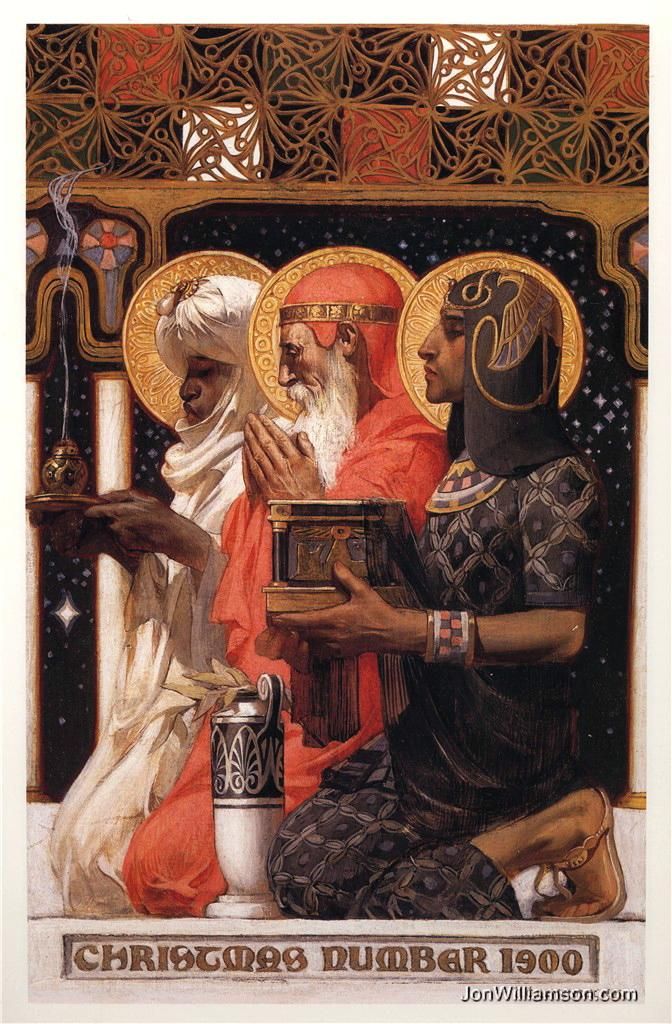A mystical Magician from the East, and a King of Light...
Melichi-or (King of Light) , was purportedly one of the Biblical Magi (Magician) along with Caspar and Balthazar who visited the infant Jesus after he was born. Melchi-or was often referred to as the oldest member of the Magi.
He was traditionally called the King of Persia and brought the gift of Gold to Jesus. In the Western Christian church, he is regarded as a saint (as are the other two Magi).
The biblical Magi (singular: magus; Greek: μάγοι, magoi), also referred to as the Three Wise Men or Three Kings, were, in the Gospel of Matthew and Christian tradition, a group of distinguished foreigners who visited Jesus after his birth, bearing gifts of gold, frankincense and myrrh. They are regular figures in traditional accounts of the nativity celebrations of Christmas and are an important part of Christian tradition.
The Gospel of Matthew is the only one of the four canonical gospels that mentions the Magi. Matthew reports that they came "from the east" to worship the "king of the Jews". The gospel never actually mentions the number of Magi, but most western Christian denominations have traditionally assumed them to have been three in number, based on the statement that they brought three gifts. In Eastern Christianity, especially the Syriac churches, the Magi often number twelve. Their identification as kings in later Christian writings is probably linked to Psalms 72:11, "May all kings fall down before him".
Source: https://en.wikipedia.org/wiki/Biblical_Magi
Magi ( from Latin magus) denotes followers of Zoroastrianism or Zoroaster. The earliest known use of the word Magi is in the trilingual inscription written by Darius the Great, known as the Behistun Inscription. Old Persian texts, pre-dating the Hellenistic period, refer to a Magus as a Zurvanic, and presumably Zoroastrian, priest.
Pervasive throughout the Eastern Mediterranean and Western Asia until late antiquity and beyond, mágos, "magician", was influenced by (and eventually displaced) Greek goēs (γόης), the older word for a practitioner of magic, to include astrology, alchemy and other forms of esoteric knowledge. This association was in turn the product of the Hellenistic fascination for (Pseudo‑)Zoroaster, who was perceived by the Greeks to be the "Chaldean", "founder" of the Magi and "inventor" of both astrology and magic, a meaning that still survives in the modern-day words "magic" and "magician".
Source: https://en.wikipedia.org/wiki/Magi
